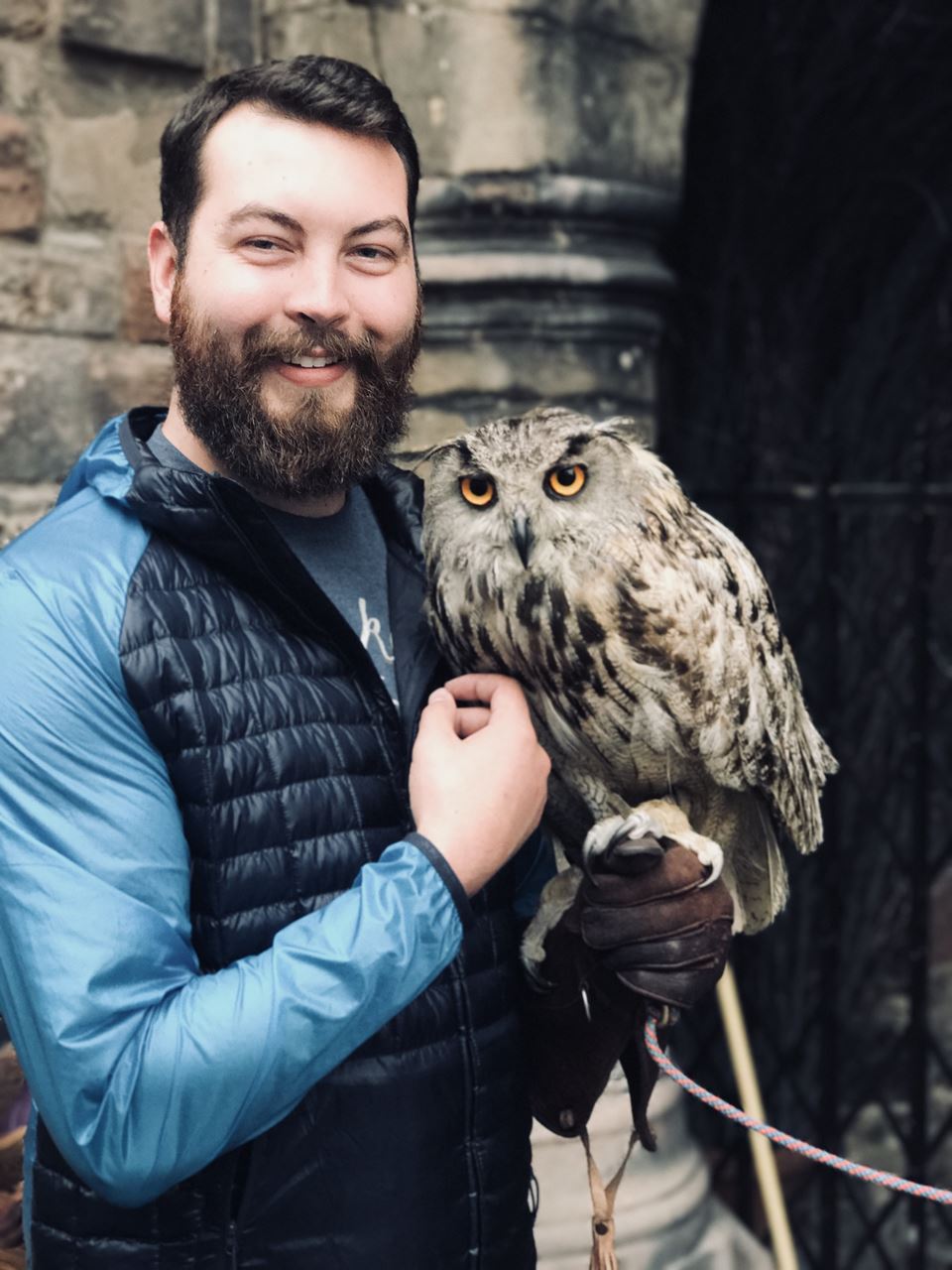Submitted by: William Ridgway (Chair) and Madeline Bruce (Associate Chair)
During these first few months of this new year, the GSTA Corner will be featuring brief interviews with all six members of our committee. This month, we are featuring this year’s Chair and Associate Chair.
Type of doctoral program, year, & expected graduation:
William: I am a fourth-year doctoral student in the Psychological and Brain Sciences PhD program at University of Nevada, Las Vegas, and on track to graduate in Summer 2023.
Mads: I am a fourth-year doctoral candidate in the Clinical Psychology PhD program at Saint Louis University on track to graduate in the Summer of 2023.
Classes you have taught and/or been a GTA for (undergraduate or graduate):
William: I have been the instructor of record for Introduction to Psychology. Since Fall 2022, I have been the instructor of record for Forensic Psychology.
Mads: I have been the instructor of record for Abnormal Psychology and a GTA for General, Clinical and Abnormal, Pediatric, and Trauma Psychology.
Experiences you have been able to participate in because of being a part of GSTA:

William: Since joining the GSTA, I have been able to actively provide graduate students with essential resources and best practices for teaching. Additionally, I have had the opportunity to collaborate with and learn from extraordinary individuals.

Mads: While still relatively new, I’ve been provided tremendous opportunities to develop supportive relationships with fellow graduate students. We’ve been able to provide resources and support for the next generation of teachers, and there’s only more to come!
Benefits of GSTA on your professional development and future as an academic:
William: My experiences with GSTA have allowed me to become more involved in discussing important issues in academia. For example, last year, I thoroughly enjoyed being on a panel with Dr. Molly Metz and other GSTA committee members for a symposium addressing how to approach tough topics in the classroom.
Mads: There is a collaborative climate that helps us share perspectives and scholarship of teaching and learning with each other. There is also a supportive group that helps students find their personal style.
Impact of GSTA on you personally:
William: I constantly find myself exposed to a myriad of perspectives which have allowed me to grow as an individual, allowing me to become a more effective colleague and instructor. There are so many ways in which a subject can be approached, so having individuals you can discuss various ideas with is essential. The process and feedback allow for an additional level of confidence in how you choose to approach any topic.
Mads: It’s been very meaningful to meet fellow graduate students with a passion for teaching and learning. There are times when graduate school can feel heavy on other roles psychologists take on, and to have a space where discussions of teaching can flourish is really great.
Advice (teaching and/or research tips) for other graduate students:
William: My advice to any instructor would be to acknowledge the role you play – or could play – in the academic journey of your students. Additionally, when you do not know the answer to a question, never hesitate to admit it.
Mads: My advice is likely influenced on becoming an instructor during Fall 2020 (i.e., right in the middle of the pandemic) and my clinical side: take time to foster relationships. The best learning comes from collaboration and support. Students’ time in your classroom could be quite meaningful if they knew they could try, maybe not get it, then try again, knowing their teacher was there.
